The Thick Stream, Jul 9 – Aug 6, 2020
Past: 60 Lispenard St
Installation view, The Thick Stream, Canada, 2021
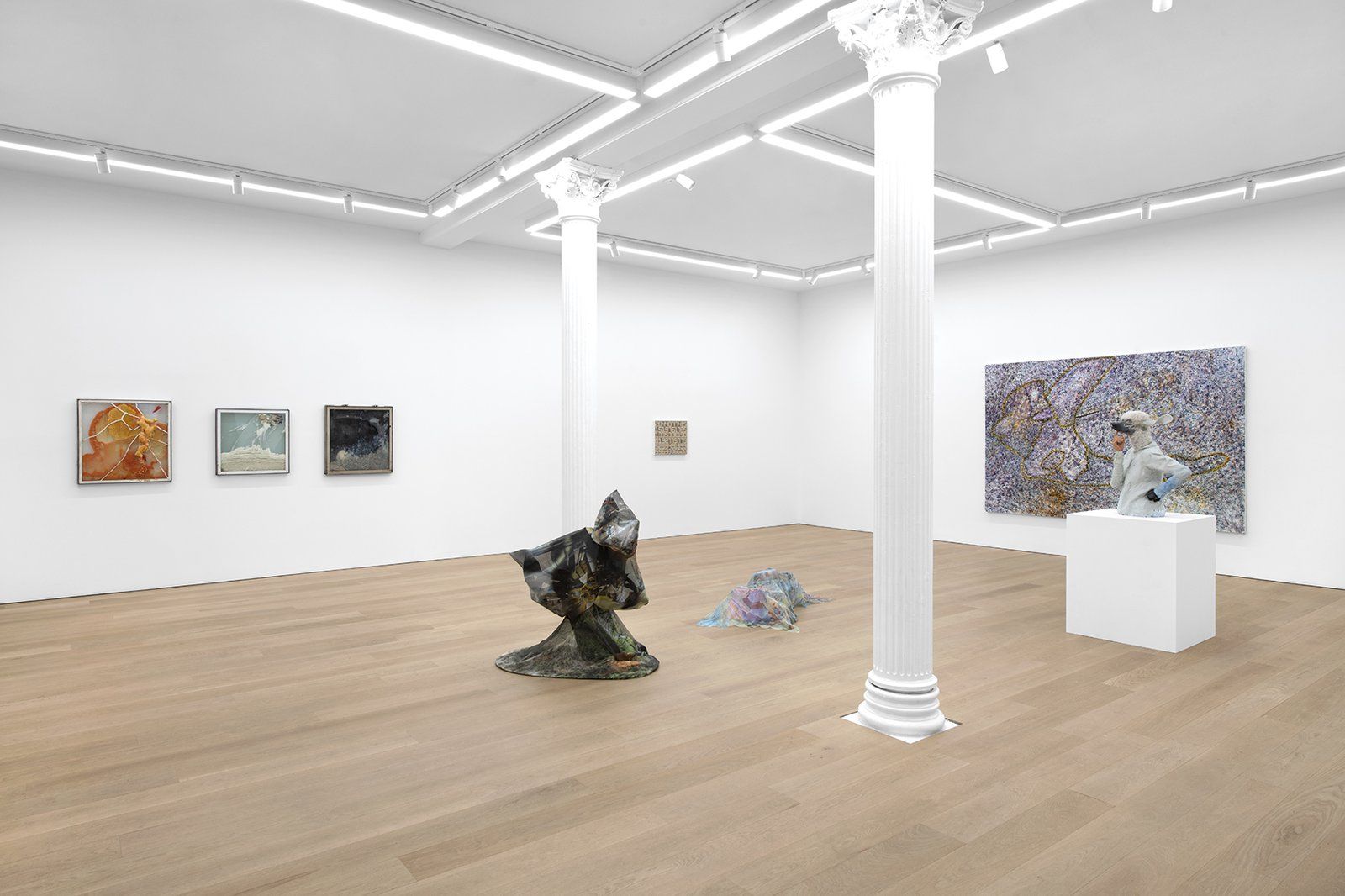
Installation view, The Thick Stream, Canada, 2021
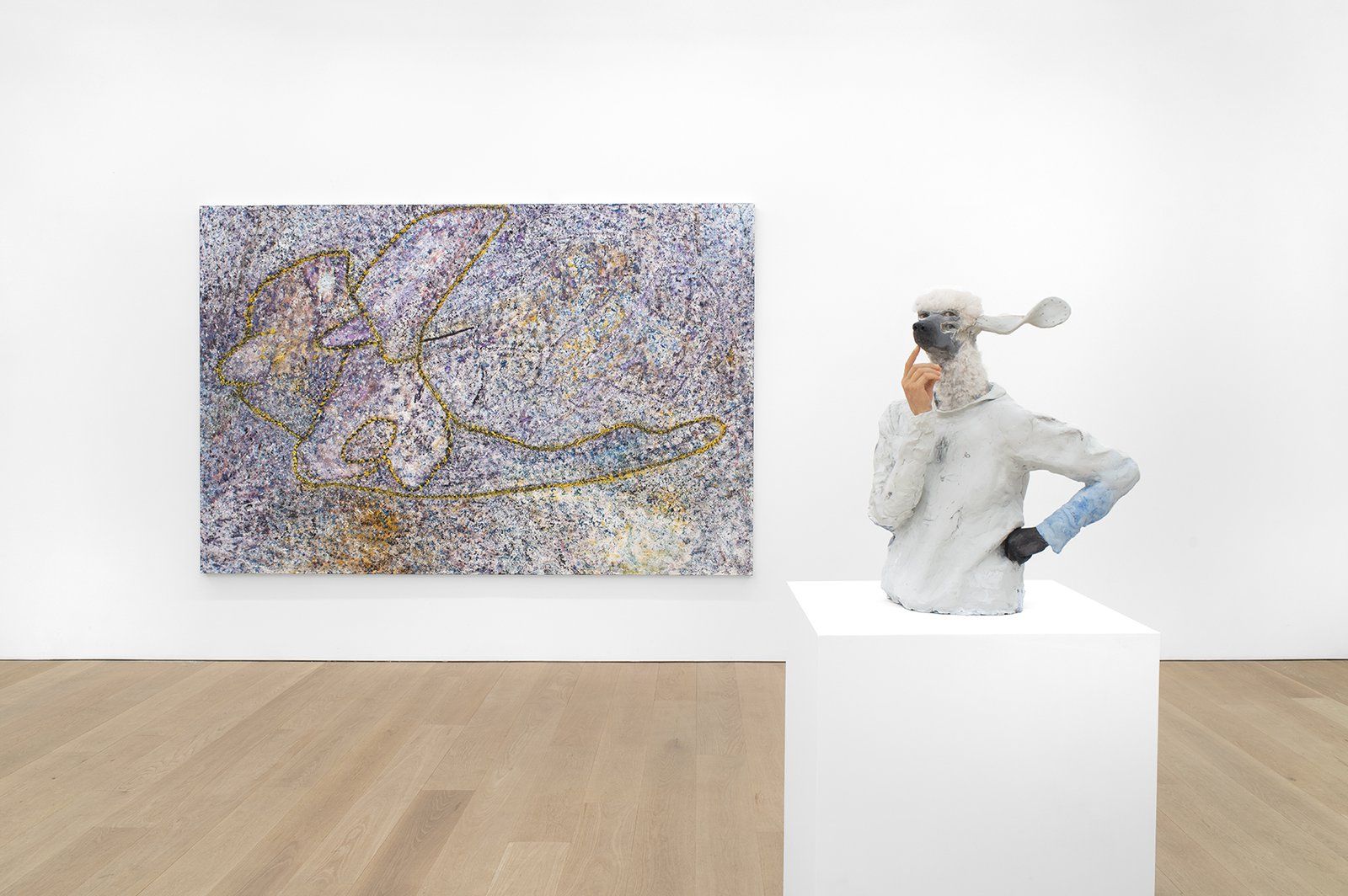
Installation view, The Thick Stream, Canada, 2021
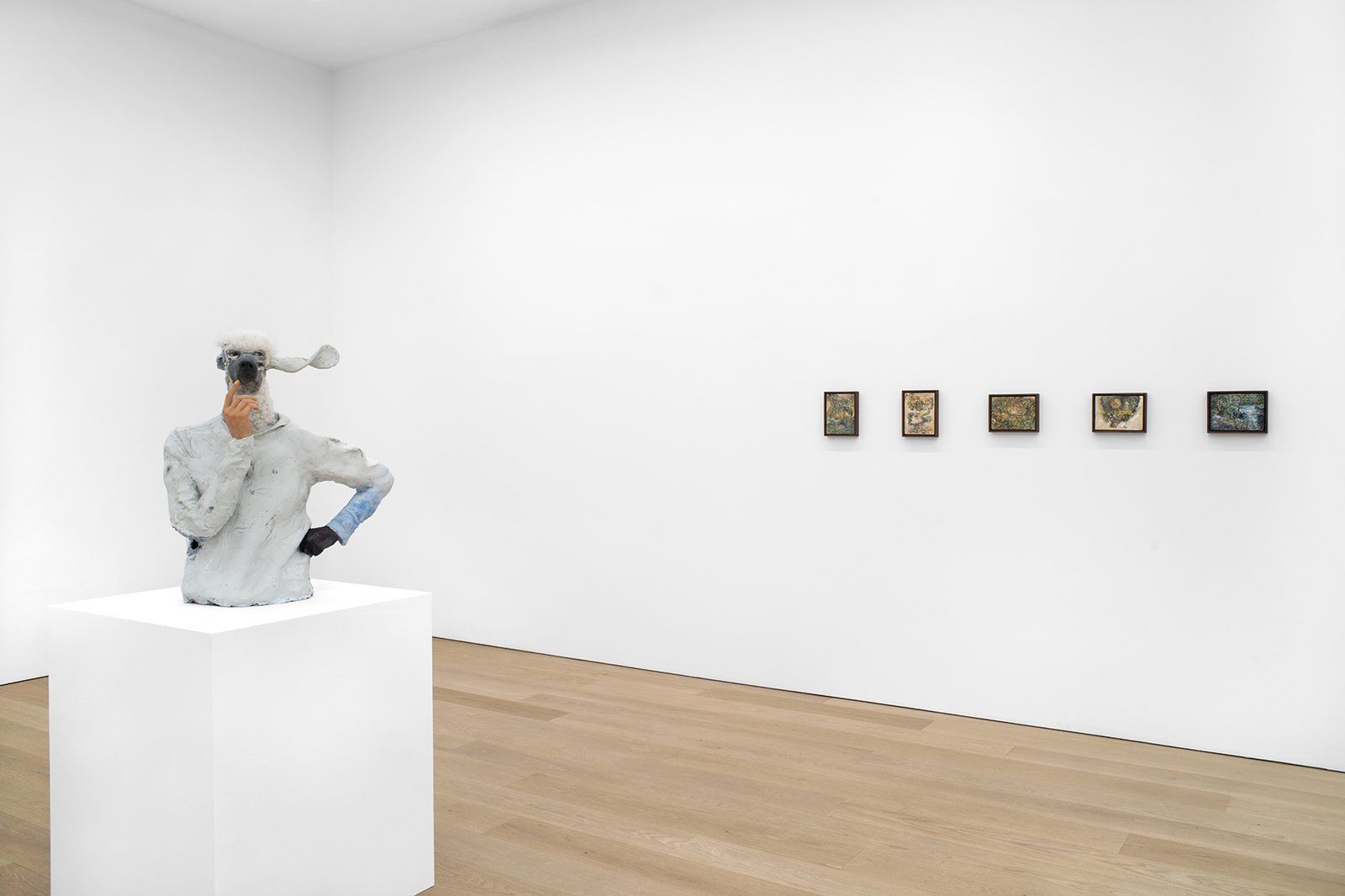
Installation view, The Thick Stream, Canada, 2021
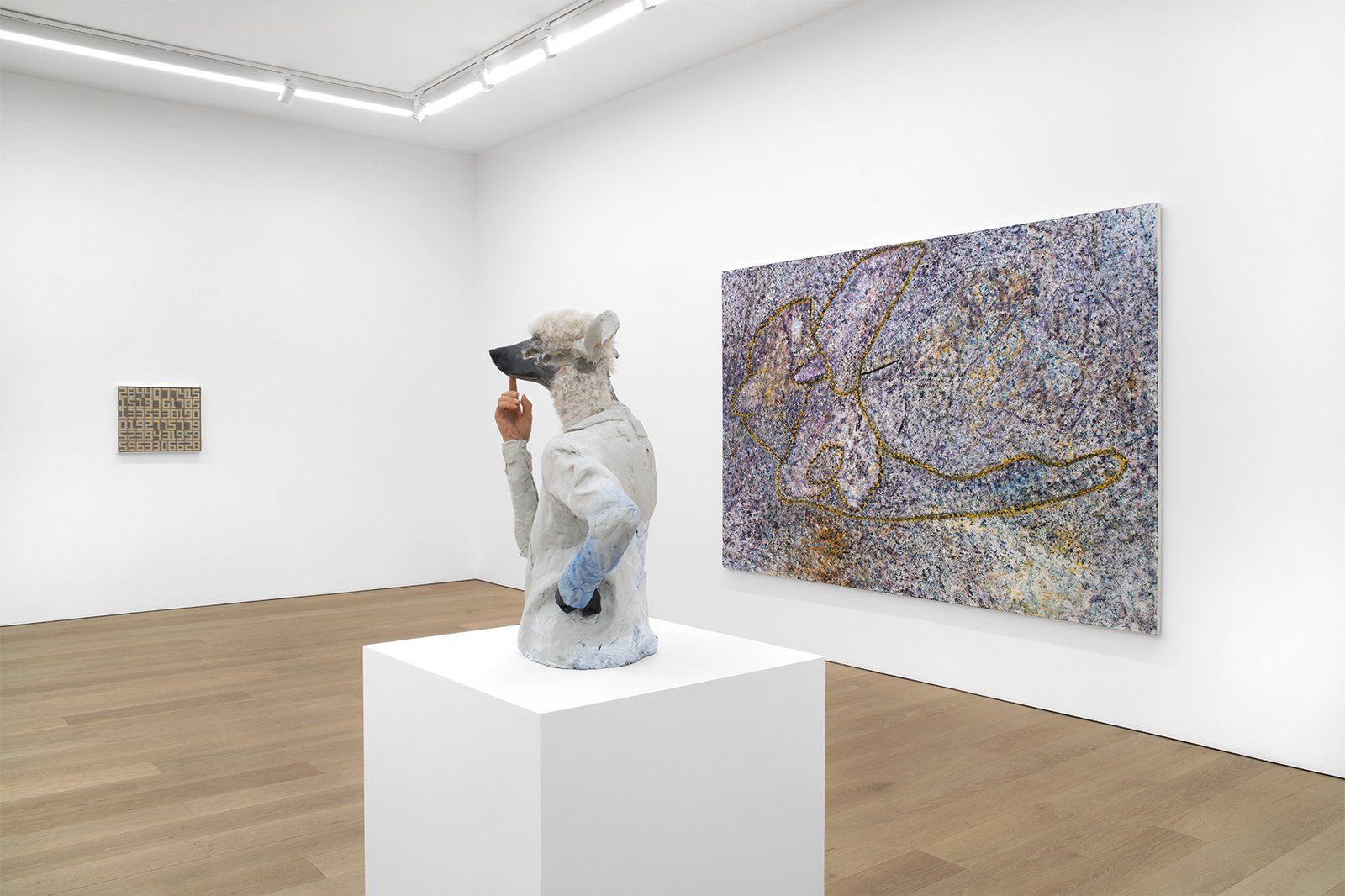
Installation view, The Thick Stream, Canada, 2021
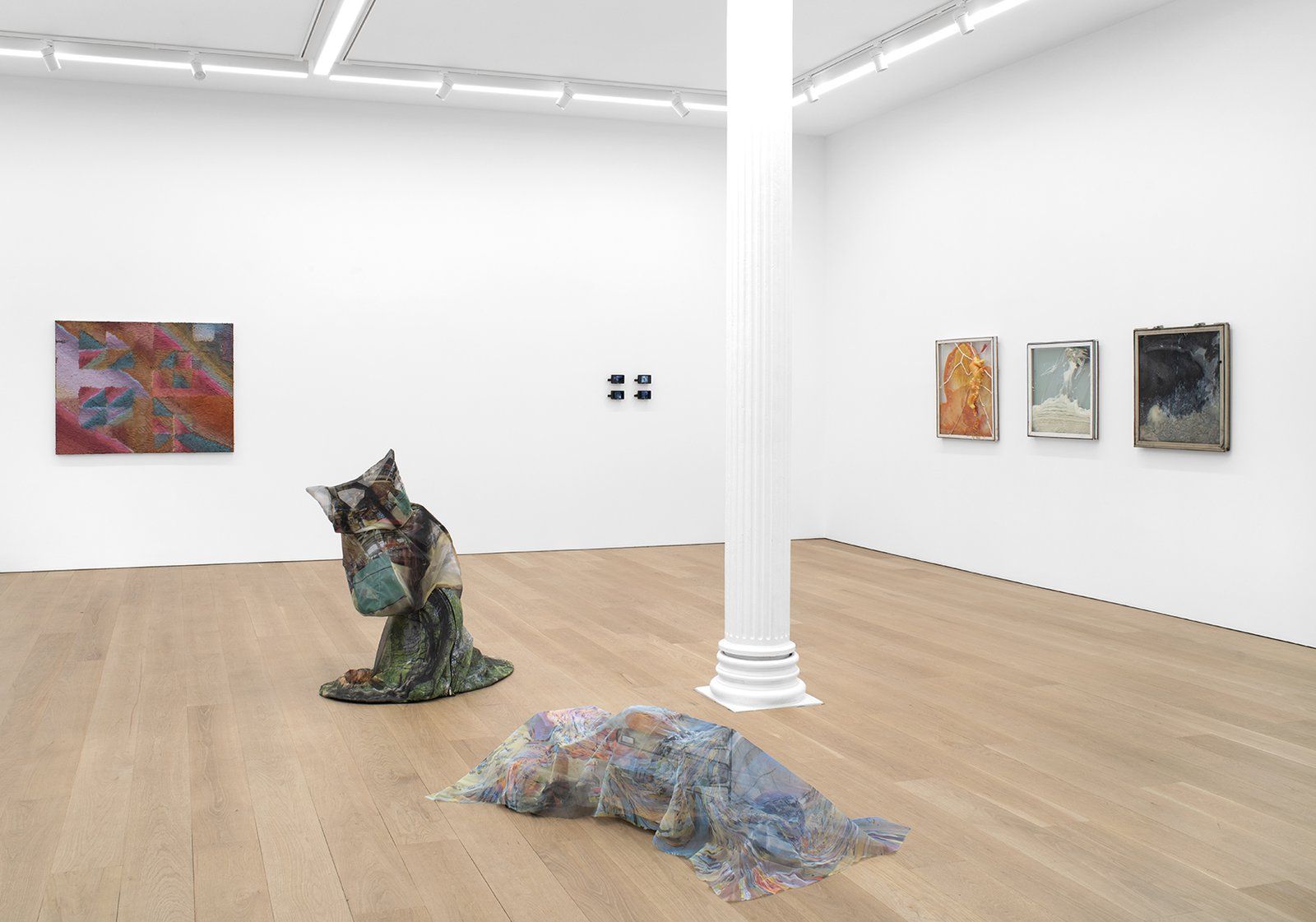
Installation view, The Thick Stream, Canada, 2021
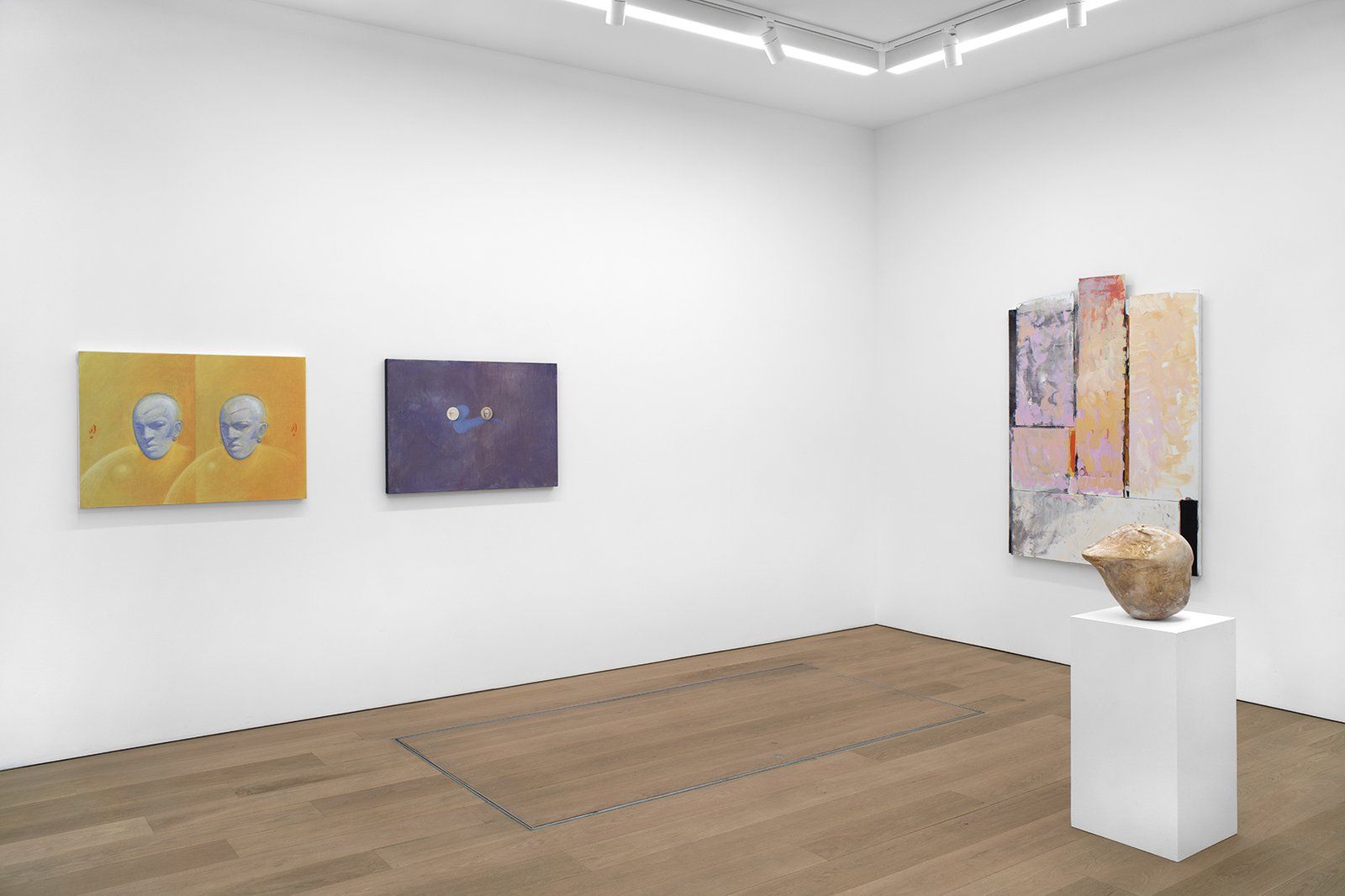
Installation view, The Thick Stream, Canada, 2021
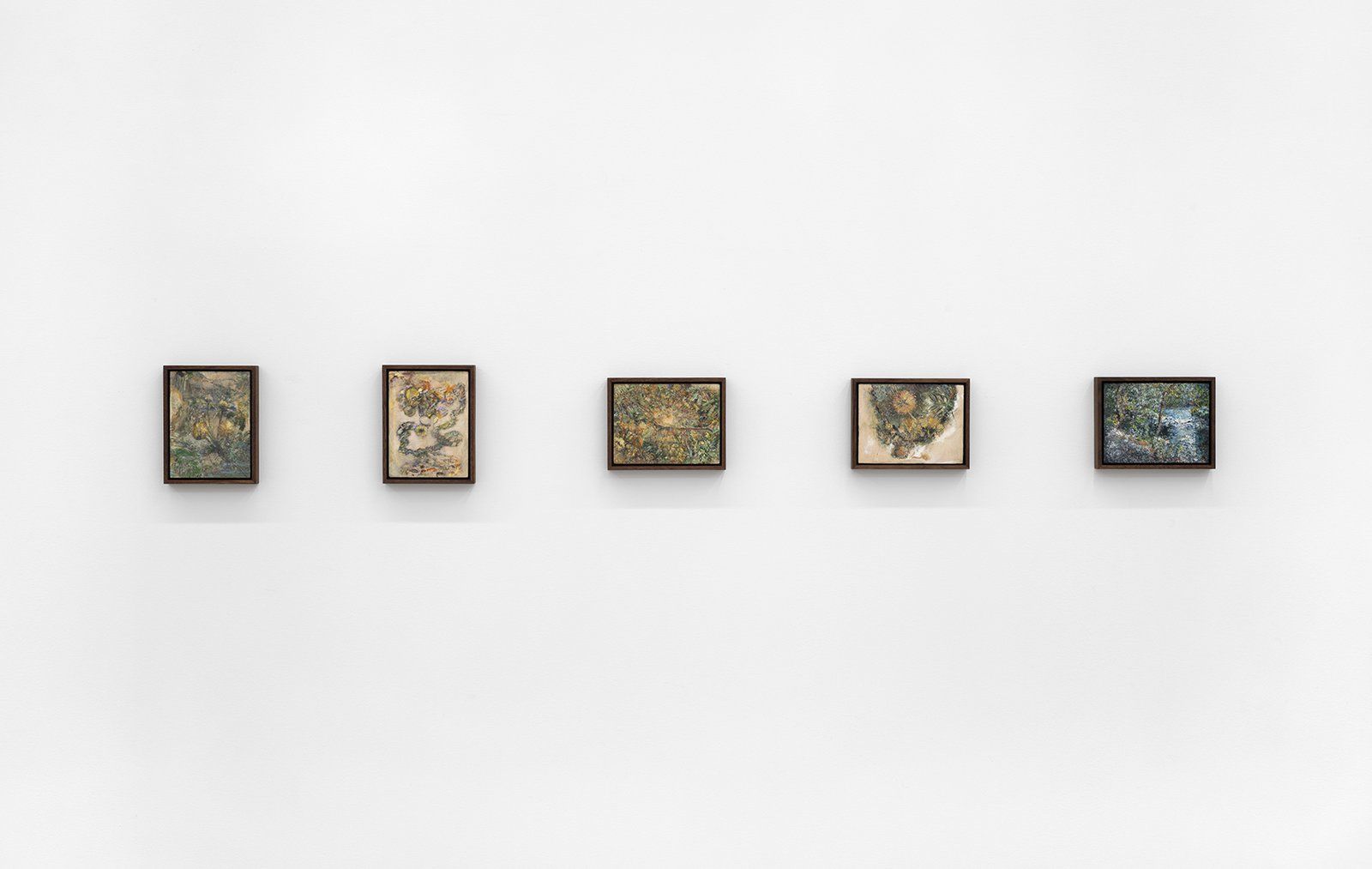
Artworks
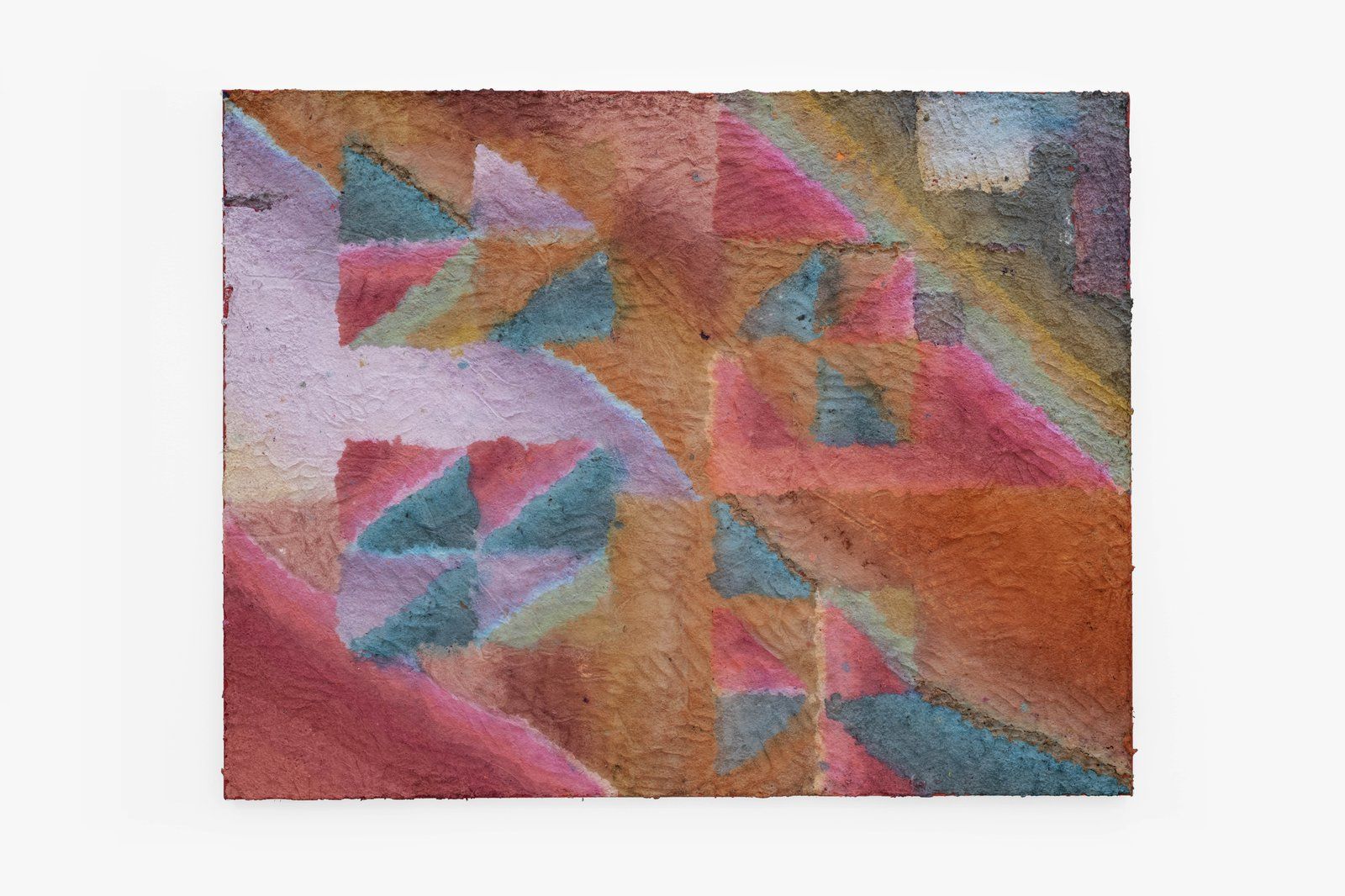
Emma Soucek,
Take Your Heart and Put it in Position,
2021,
42 × 54 in (106.68 × 137.16 cm)
Paper, matte medium, acrylic paint, glue on canvas
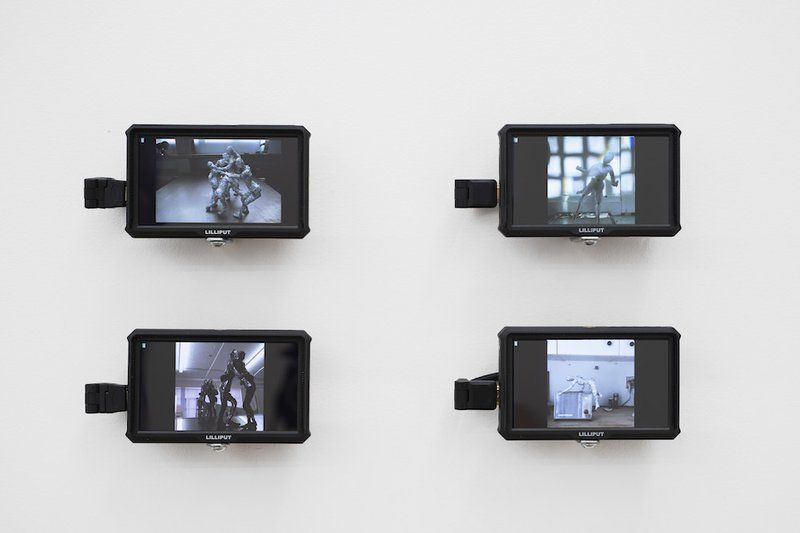
Samara Golden,
The 4th Cone,
2021,
9 × 17 × 2 ½ in (22.86 × 43.18 × 6.35 cm)
Stop motion animation, Nine digital videos on four monitors, looped
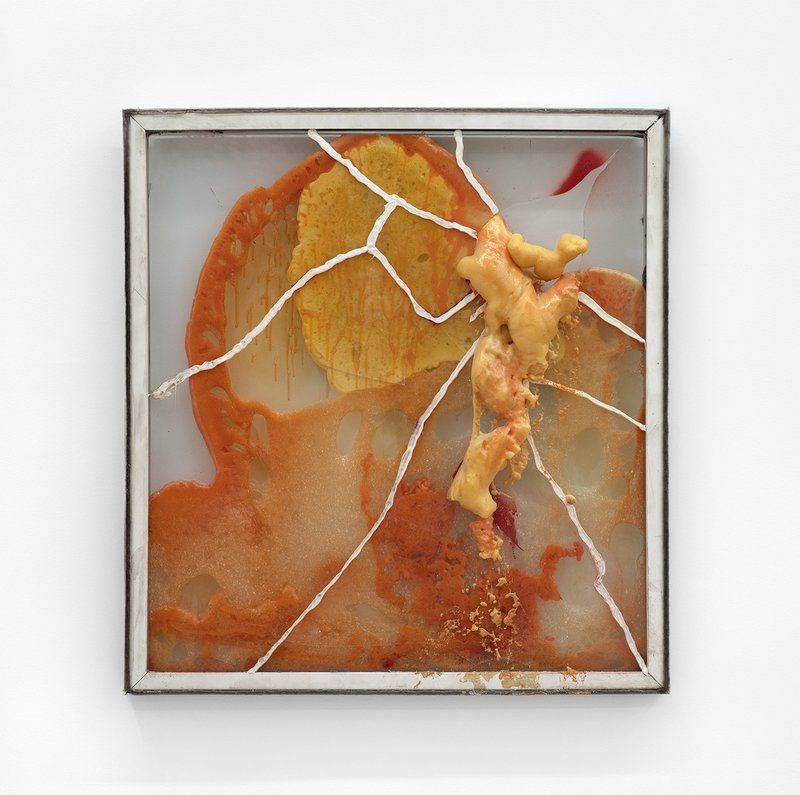
Justin Sterling,
The Fire This Time,
2018,
32 × 30 × 1 ¾ in (81.28 × 76.20 × 4.45 cm)
Found window, insulation foam, caulking, paint
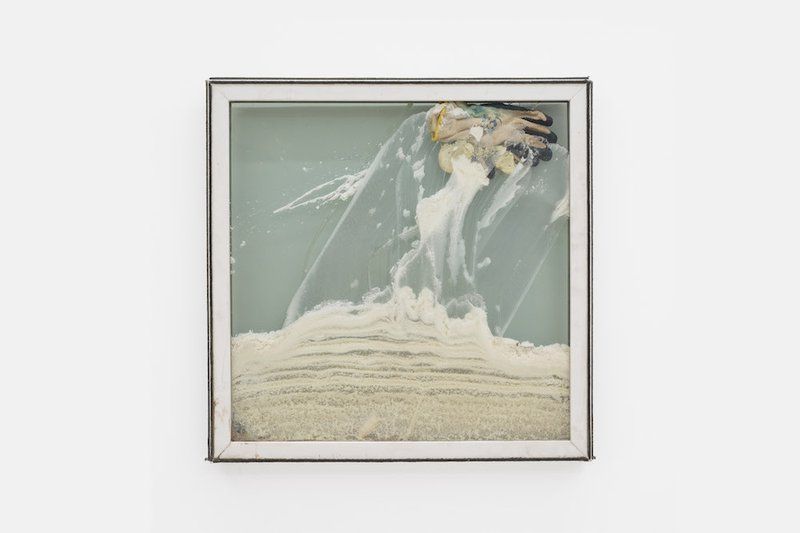
Justin Sterling,
Work spirit breaking through a cloud,
2020,
27 ½ × 28 × 1 ¾ in (69.85 × 71.12 × 4.45 cm)
Found window, insulation foam, work glove, caulking
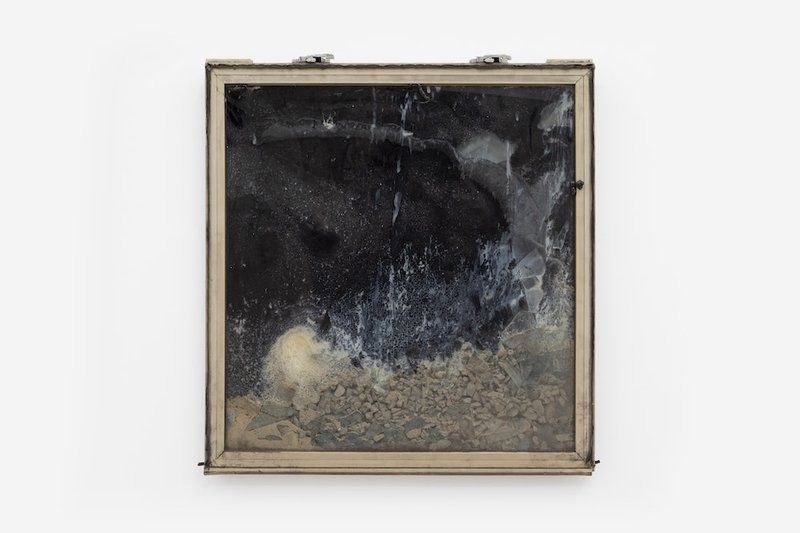
Justin Sterling,
Unbroken family portrait at night with rain,
2019,
30 ¾ × 29 × 1 ¾ in (78.11 × 73.66 × 4.45 cm)
Found window, insulation foam, sand, gravel, and glass
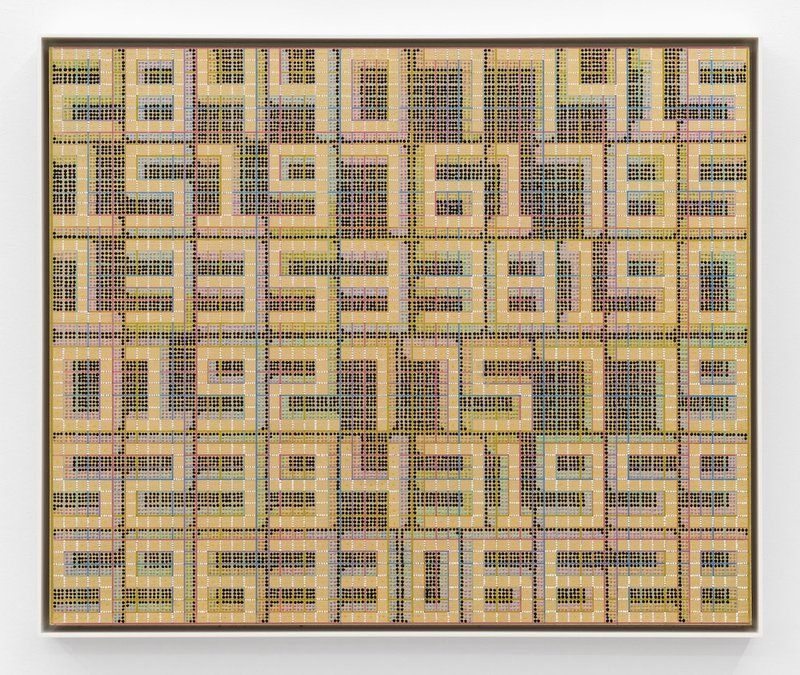
Xylor Jane,
For Mary and Bubbles,
2021,
19 ½ × 23 ½ in (49.53 × 59.69 cm)
Ink and oil on panel
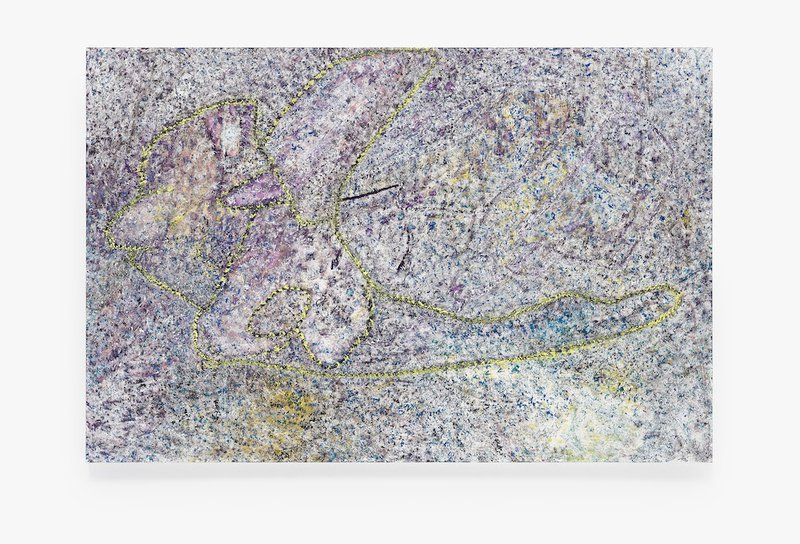
Daniel Hesidence,
Untitled (Summers Gun),
2014,
78 × 118 in (198.12 × 299.72 cm)
Oil on canvas
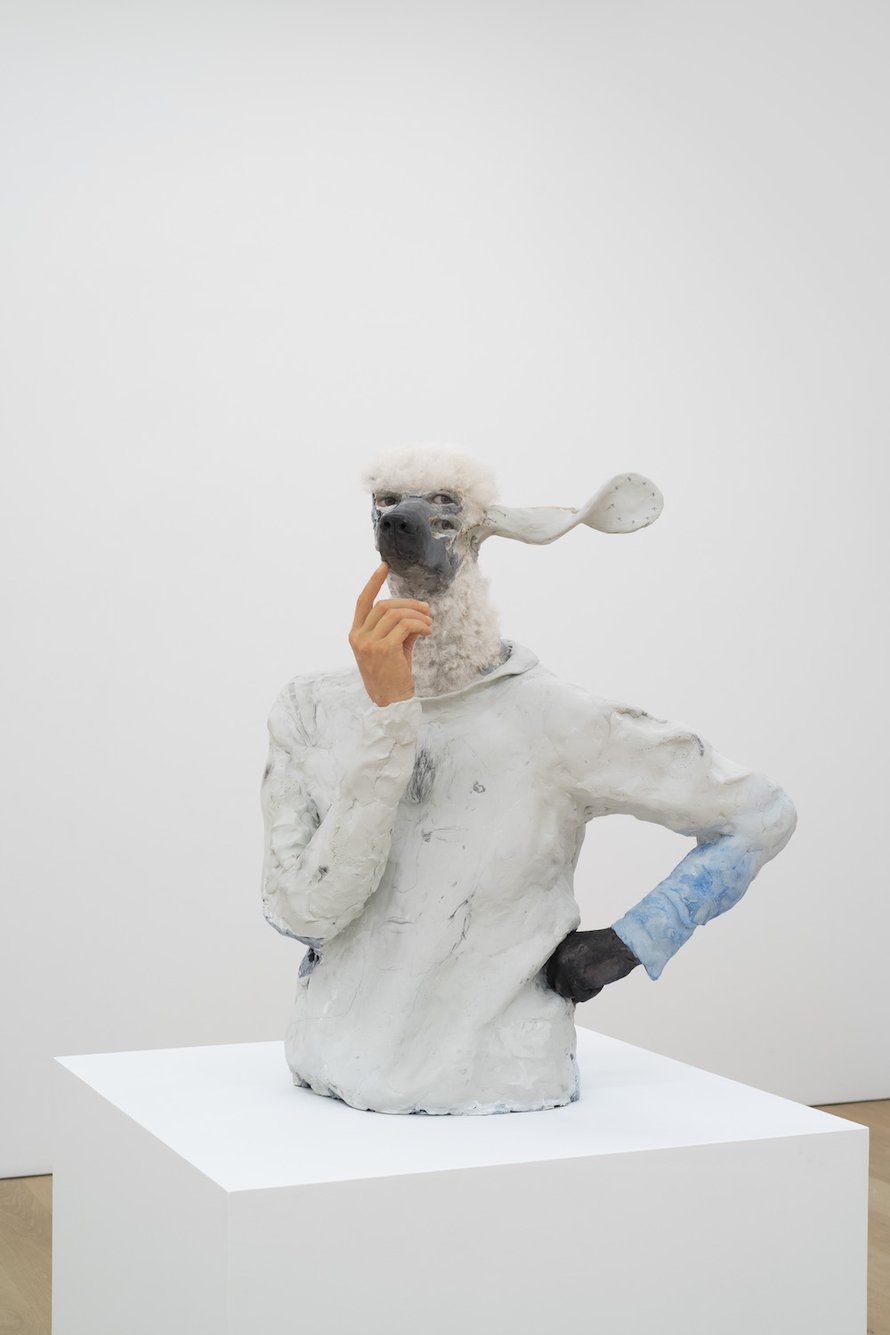
David Altmejd,
Flyod,
2021,
31 ¼ × 26 ½ × 15 ¾ in (79.38 × 67.31 × 40.01 cm)
Expanding foam, epoxy clay, epoxy gel, resin, glass eyes, metal wire, poodle hair, acrylic paint, pencil, glass rhinestones, artist's fingernails
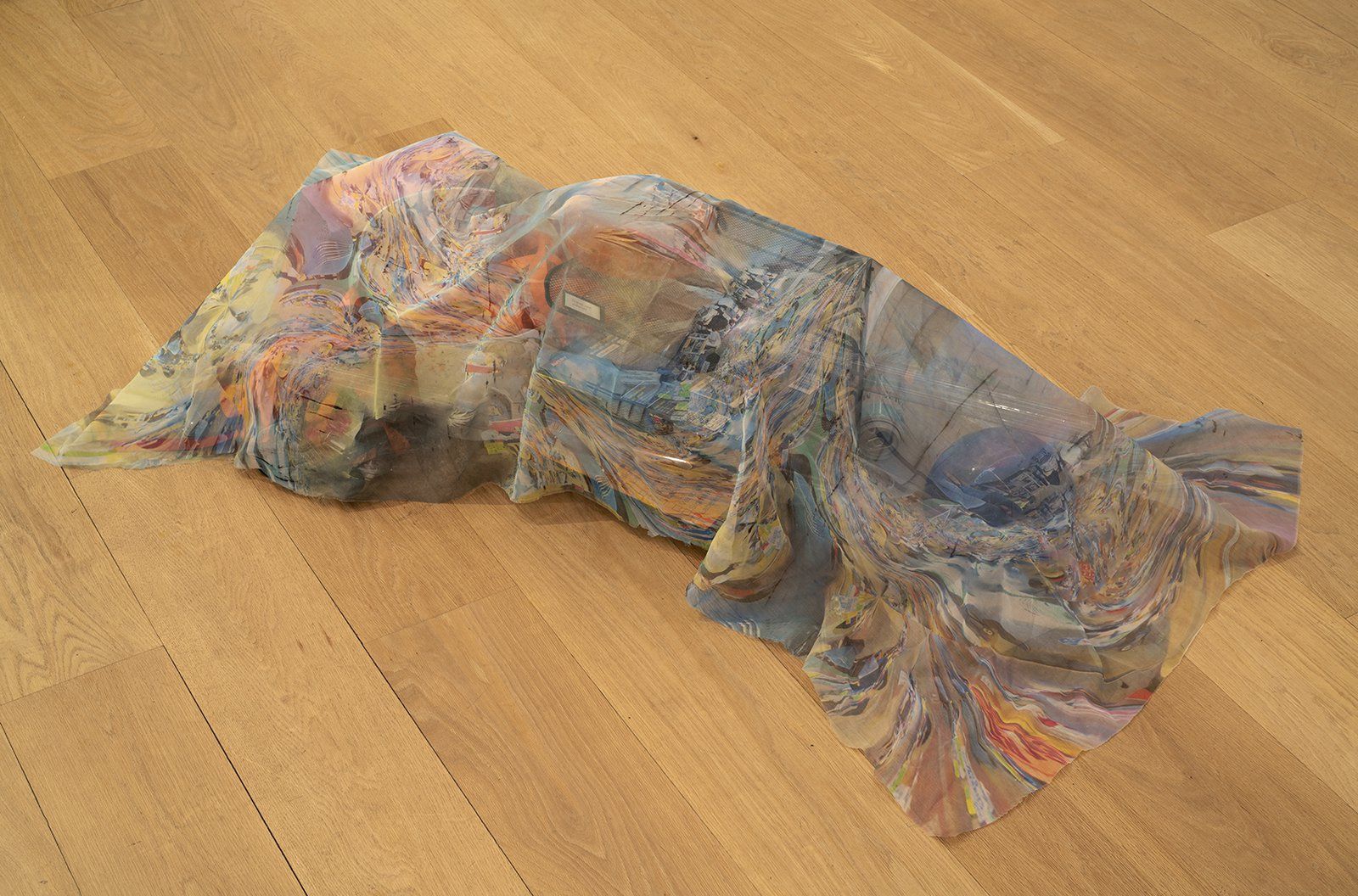
Willy Le Maitre,
See Shell Shrowd,
2021,
14 × 62 × 37 in (35.56 × 157.48 × 93.98 cm)
Pigmented inkjet print on organza fabric, mixed media
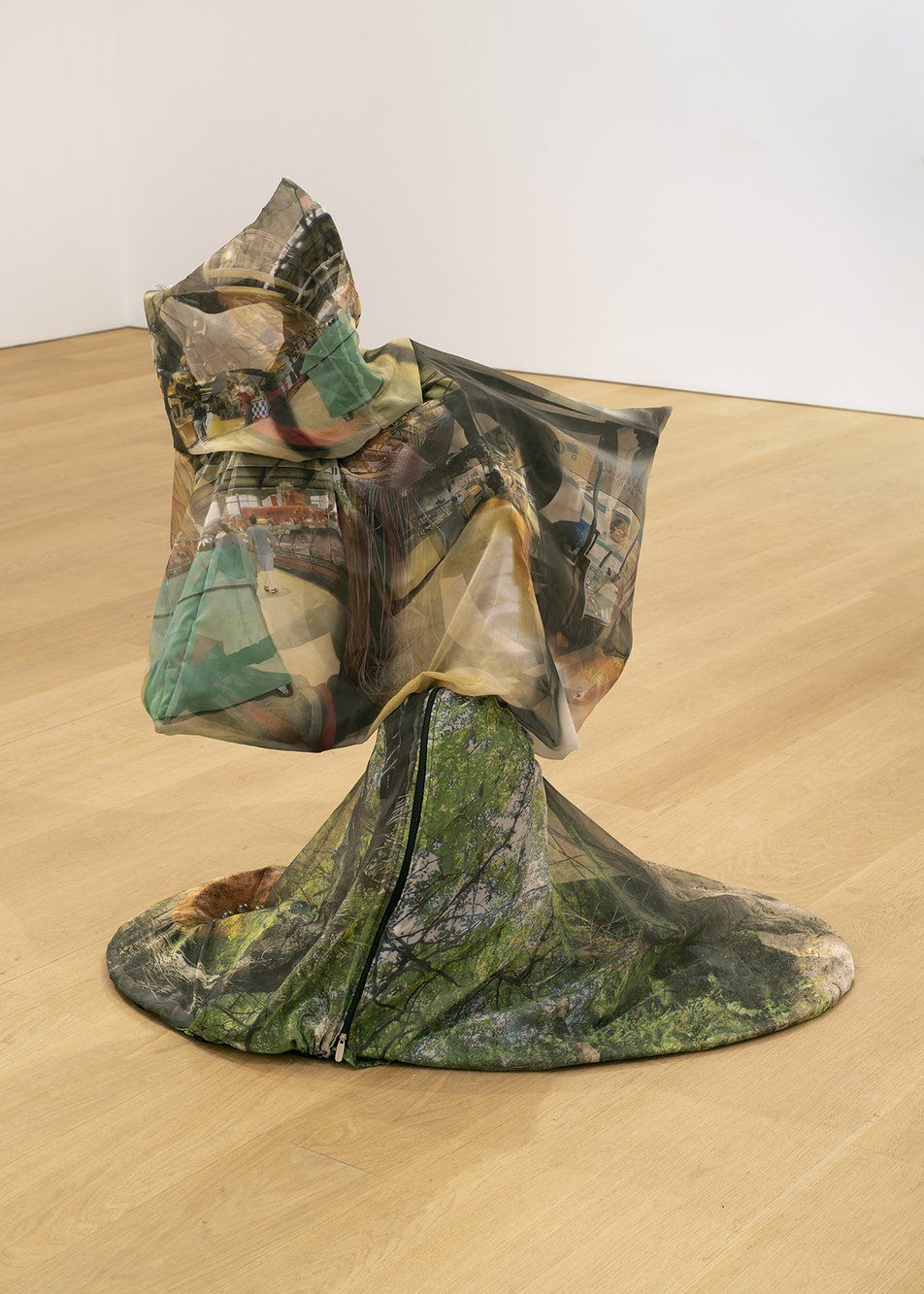
Willy Le Maitre,
Myselleum Chamber,
2021,
47 × 47 × 27 in (119.38 × 119.38 × 68.58 cm)
Pigmented inkjet print on organza fabric, wire, mixed media
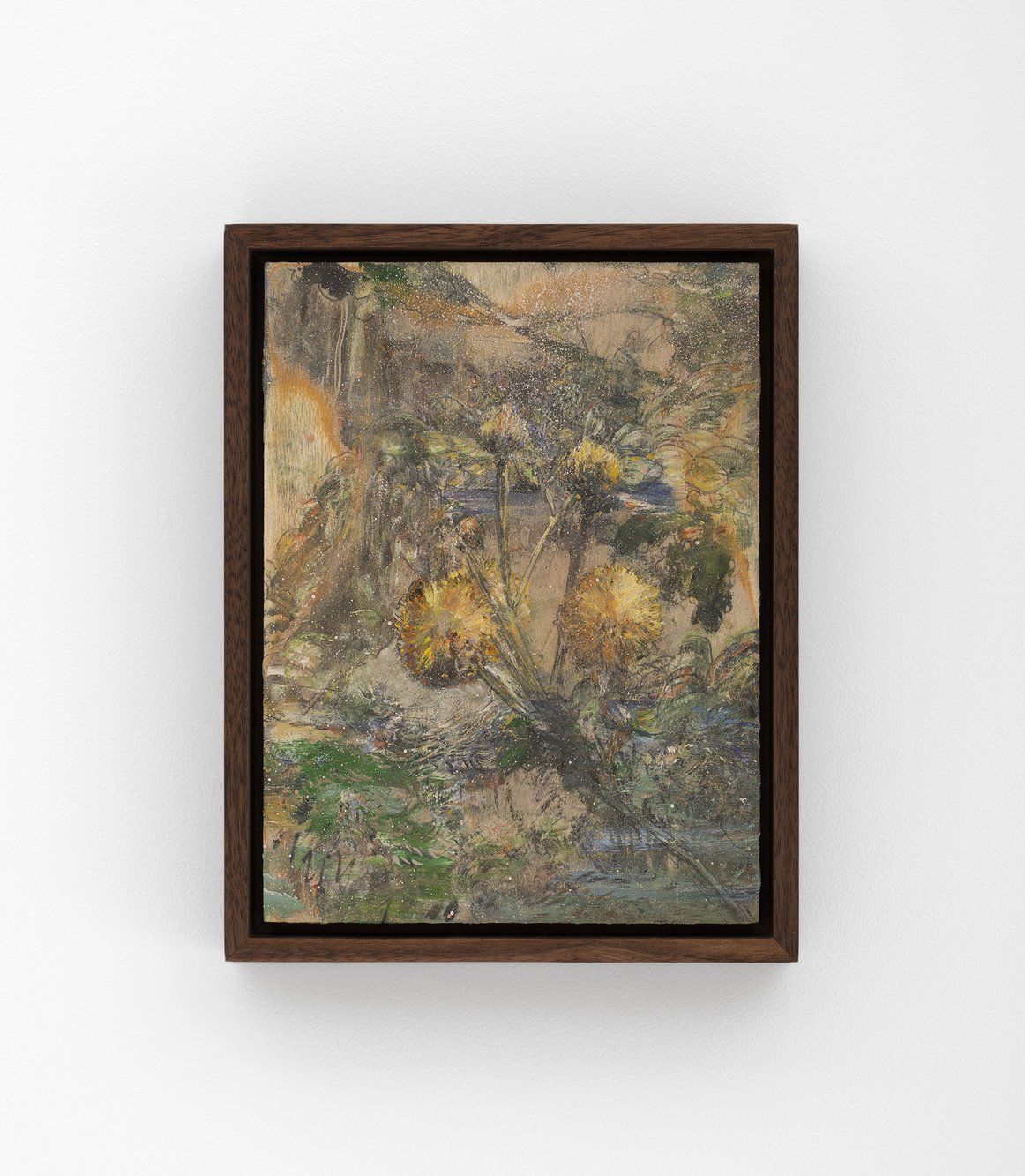
Ken D. Resseger,
Duo Macrocosmic Trance,
2019,
9 × 7 × 1 ⅜ in (22.86 × 17.78 × 3.49 cm)
Oil on wood
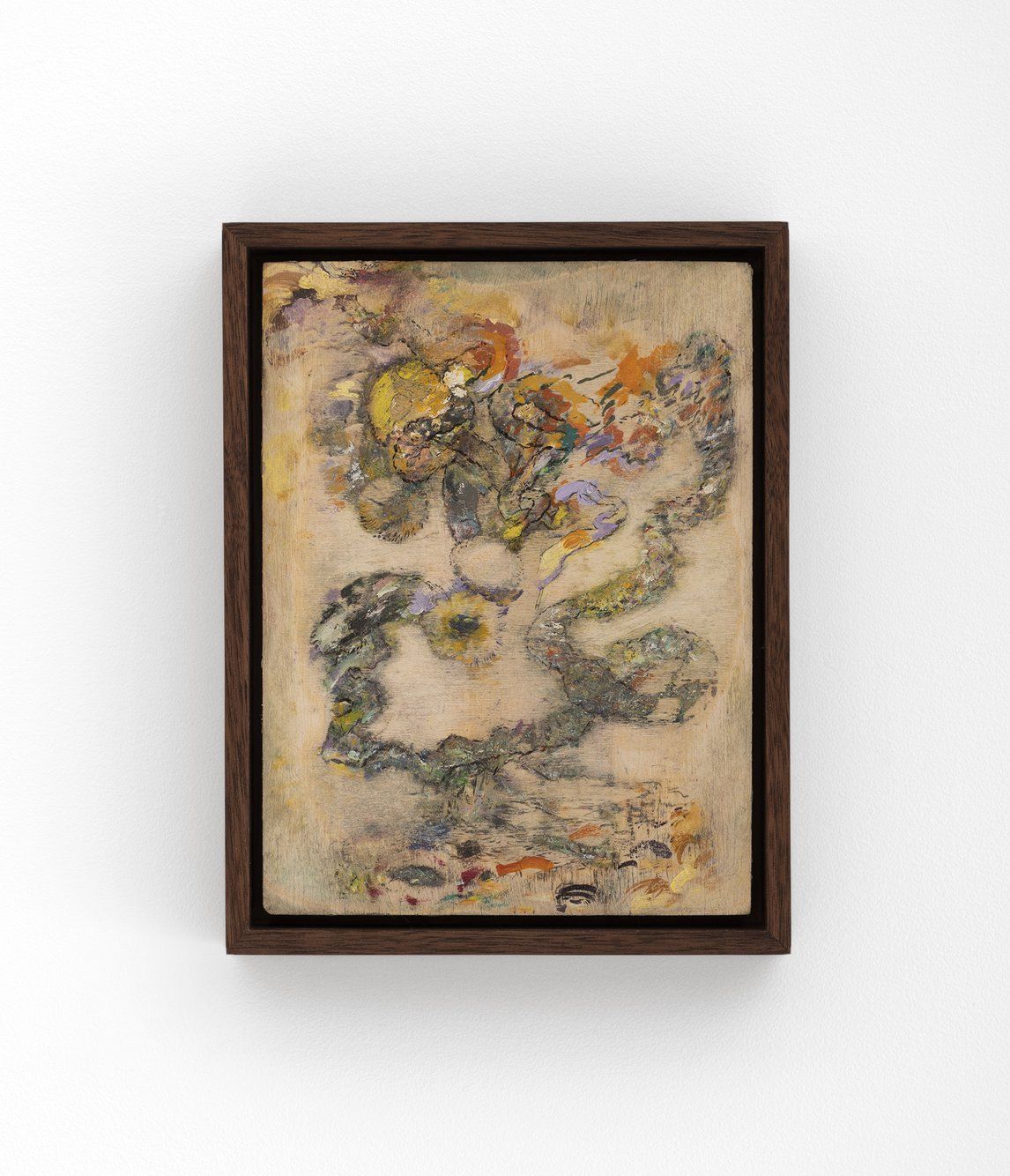
Ken D. Resseger,
Sun Snake Fried Egg,
2021,
9 × 7 × 1 ⅜ in (22.86 × 17.78 × 3.49 cm)
Oil on wood
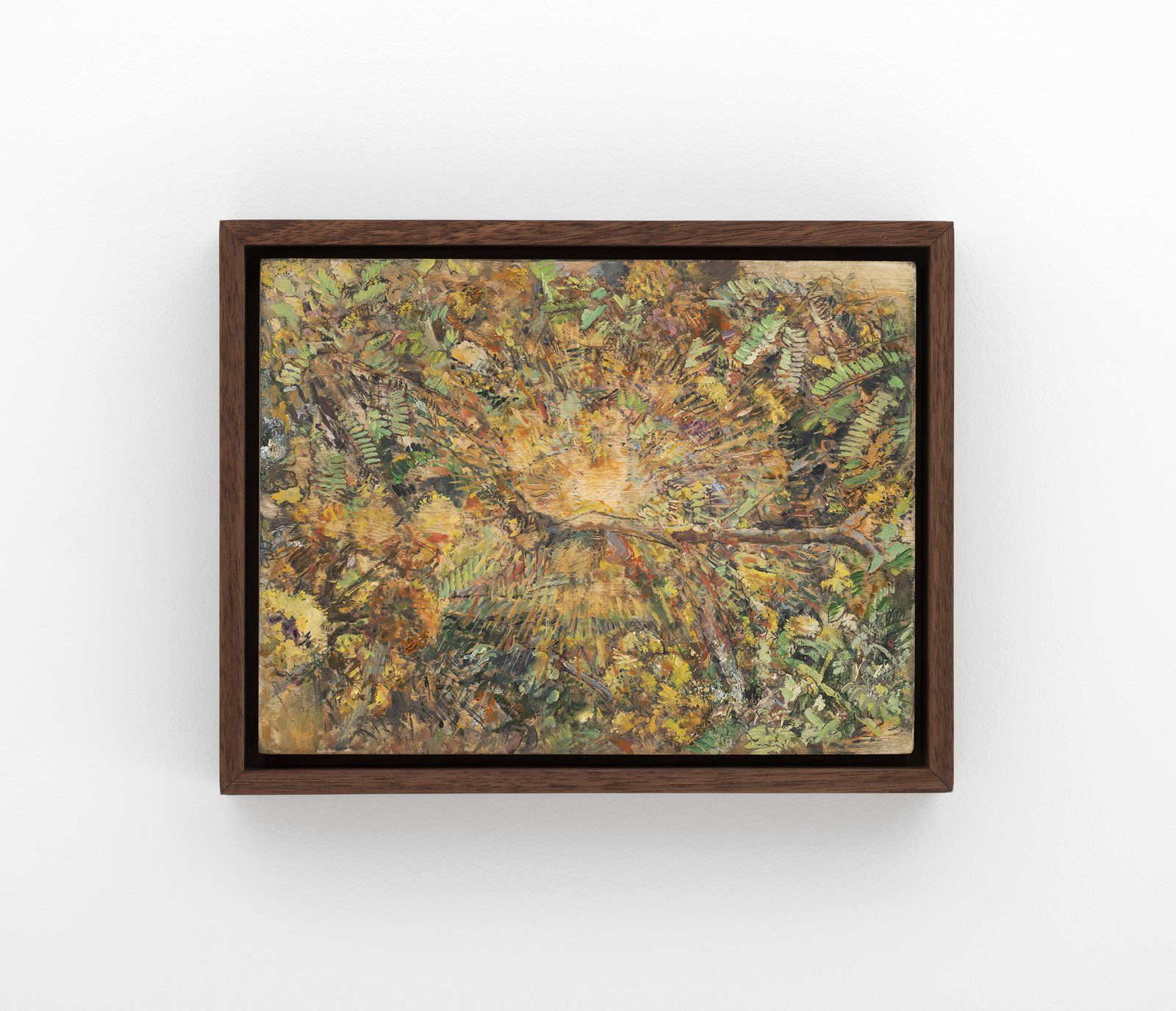
Ken D. Resseger,
Vision Discontinued by the Sun II,
2021,
7 × 9 × 1 ⅜ in (17.78 × 22.86 × 3.49 cm)
Oil on wood
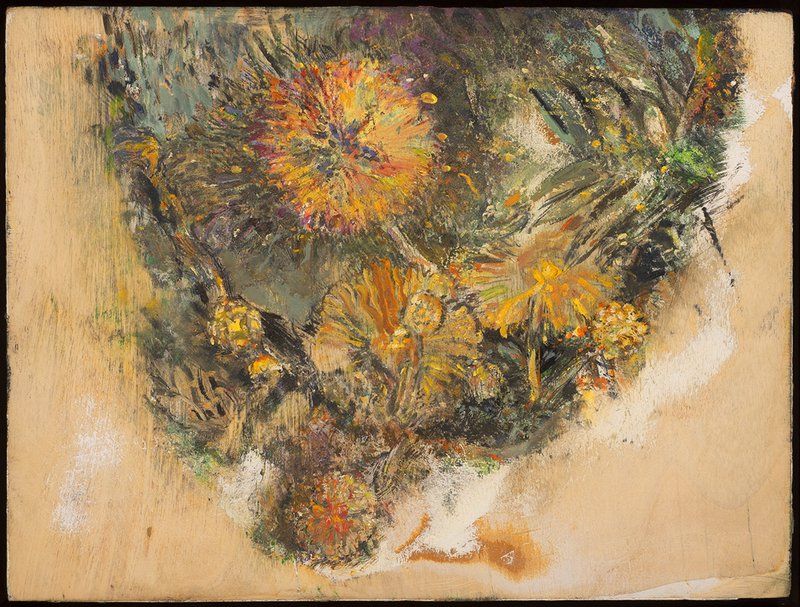
Ken D. Resseger,
Deeper Mind Trick,
2021,
7 × 9 × 1 ⅜ in (17.78 × 22.86 × 3.49 cm)
Oil on wood
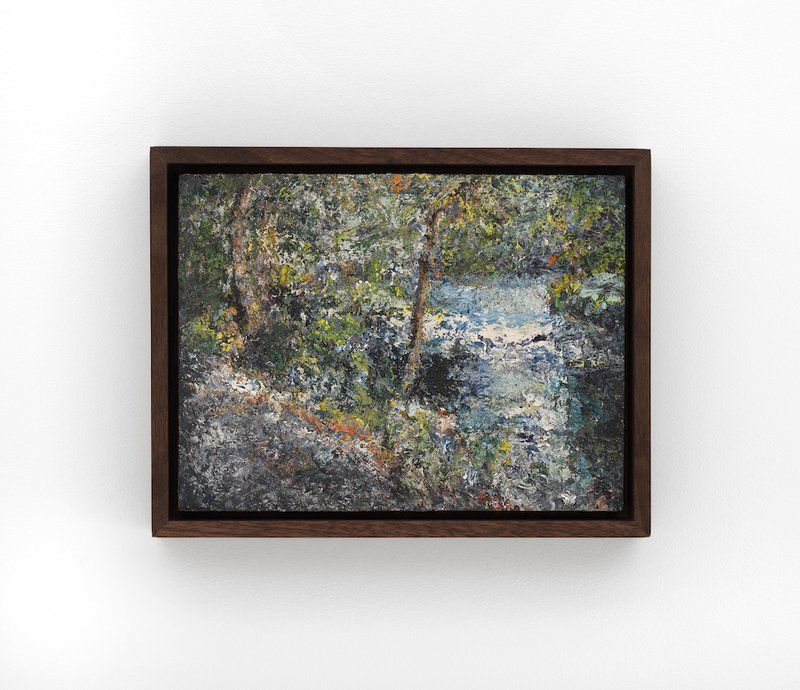
Ken D. Resseger,
The Thick Stream,
2013,
7 × 9 × 1 ⅜ in (17.78 × 22.86 × 3.49 cm)
Oil on wood
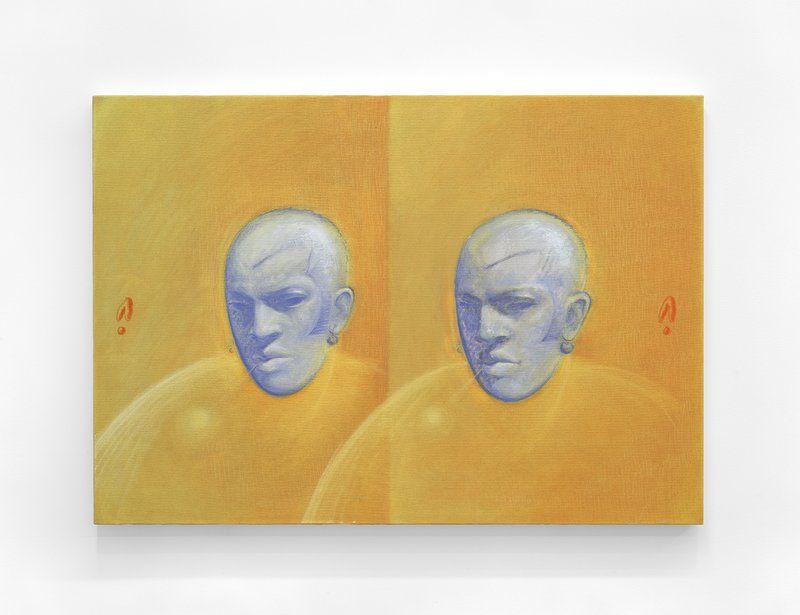
Christian Quin Newell,
Dust of the Eastern Gate,
2020,
27 ½ × 39 ⅜ in (70 × 100 cm)
Oil on canvas
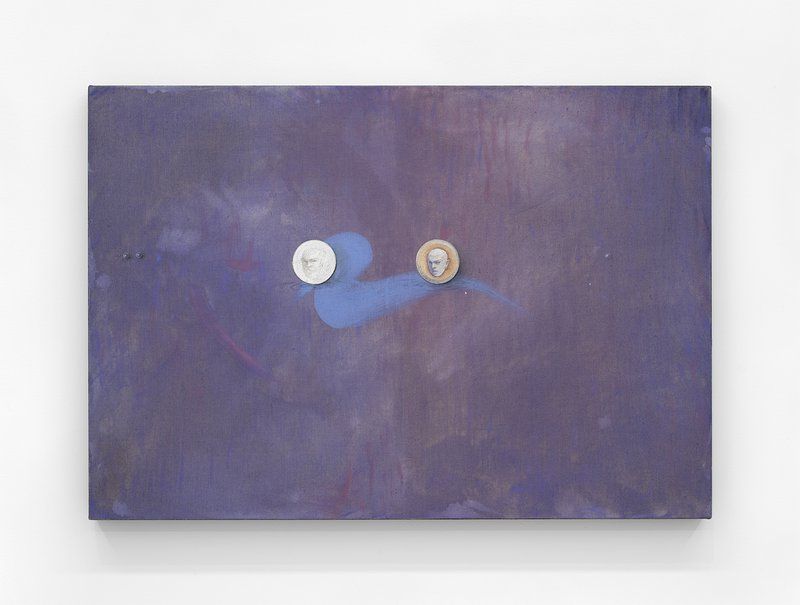
Christian Quin Newell,
Appearance of a Path,
2021,
27 ½ × 39 ⅜ in (70 × 100 cm)
Oil on canvas
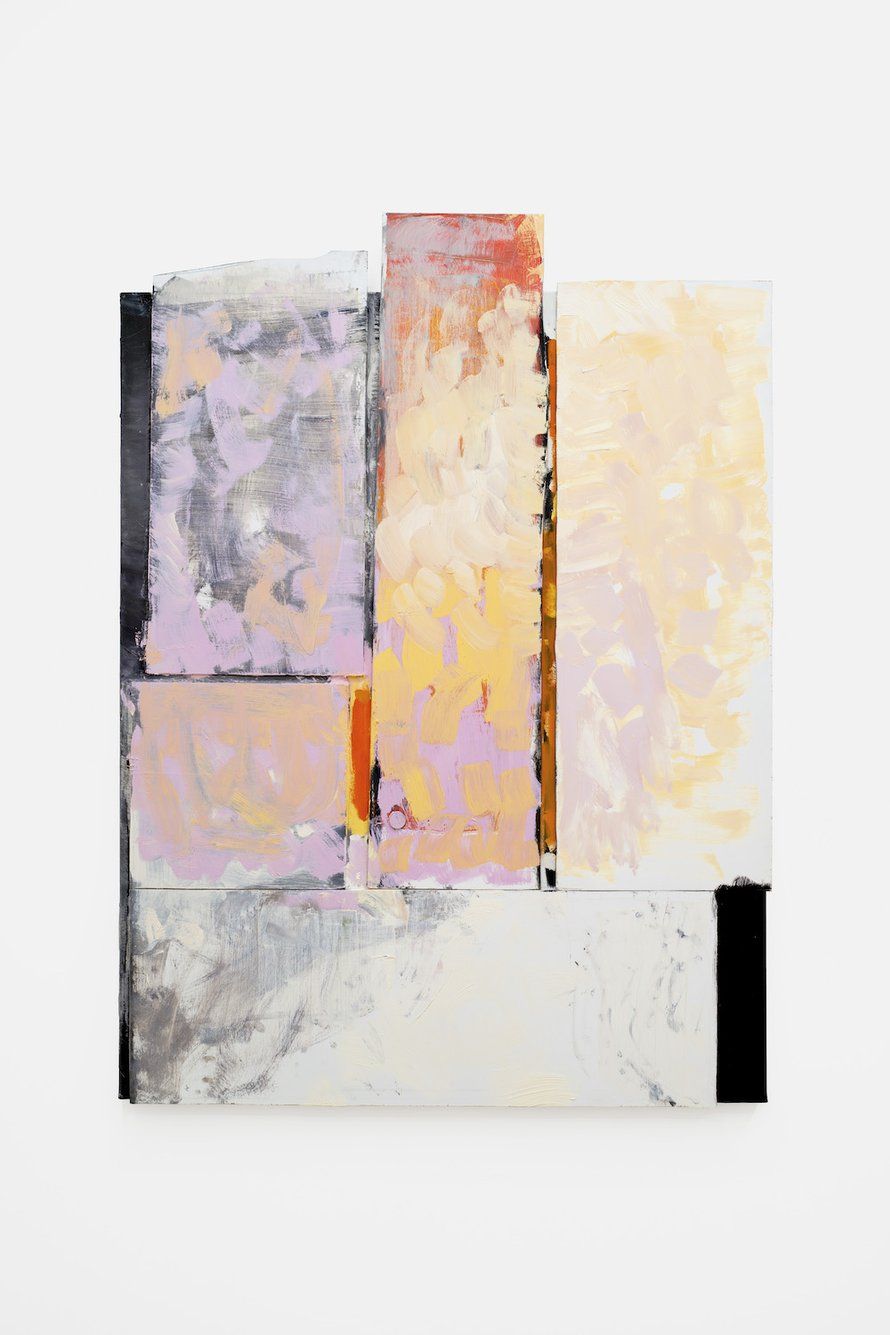
RJ Messineo,
Rose Window,
2019,
67 × 48 ½ in (170.18 × 123.19 cm)
Oil and wood on canvas
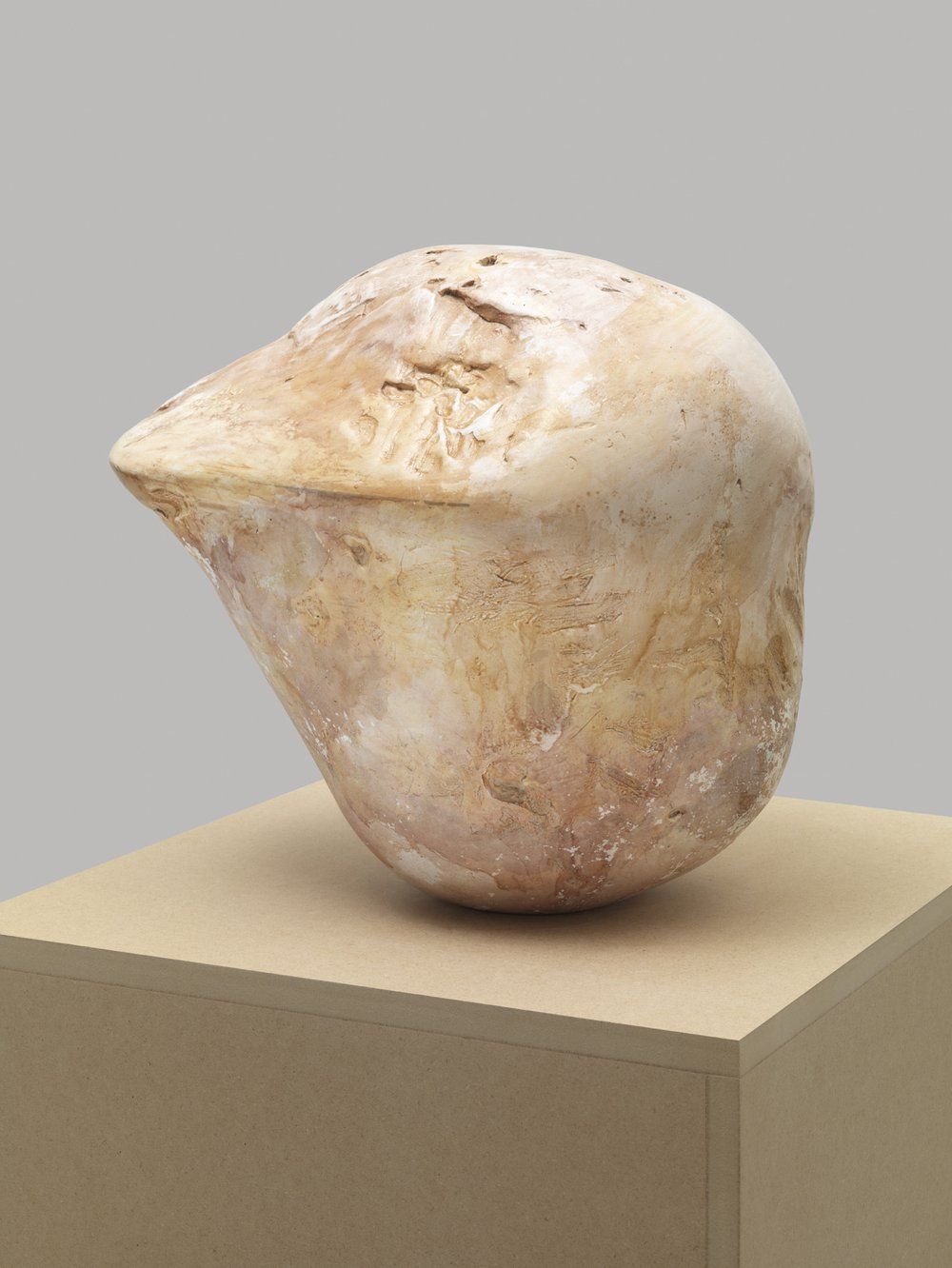
Robin Peck,
Sculpture (Crania 70),
2016,
13 ½ × 15 × 11 in (34.29 × 38.10 × 27.94 cm)
Upper section materials from the center: Hydrocal, Styrofoam, lead, cloth and plaster, Styrofoam, Hydrocal, shellac, carnauba wax. Lower section materials from the center: Styrofoam, lead, cloth and plaster, aluminum, iron, burlap and Hydrocal, plaster, dental plaster, Ultracal gypsum cement, Hydrocal, shellac, carnauba wax
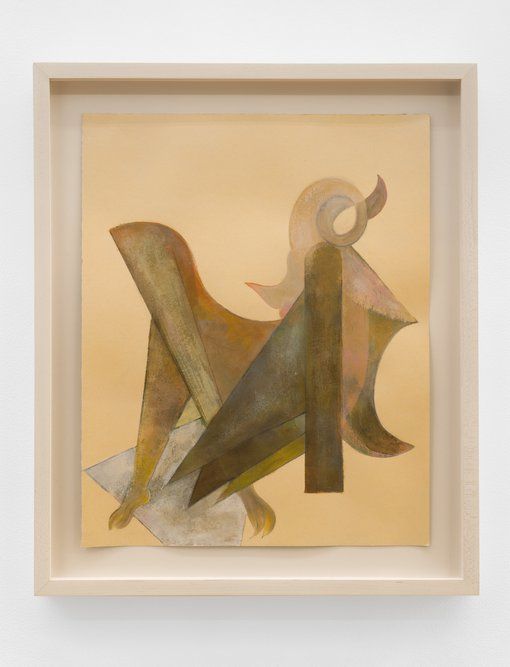
Lily Ludlow,
Untitled,
2017,
18 ¼ × 15 ¼ × 1 ½ in (46.36 × 38.74 × 3.81 cm)
Colored pencil, graphite, acrylic on paper
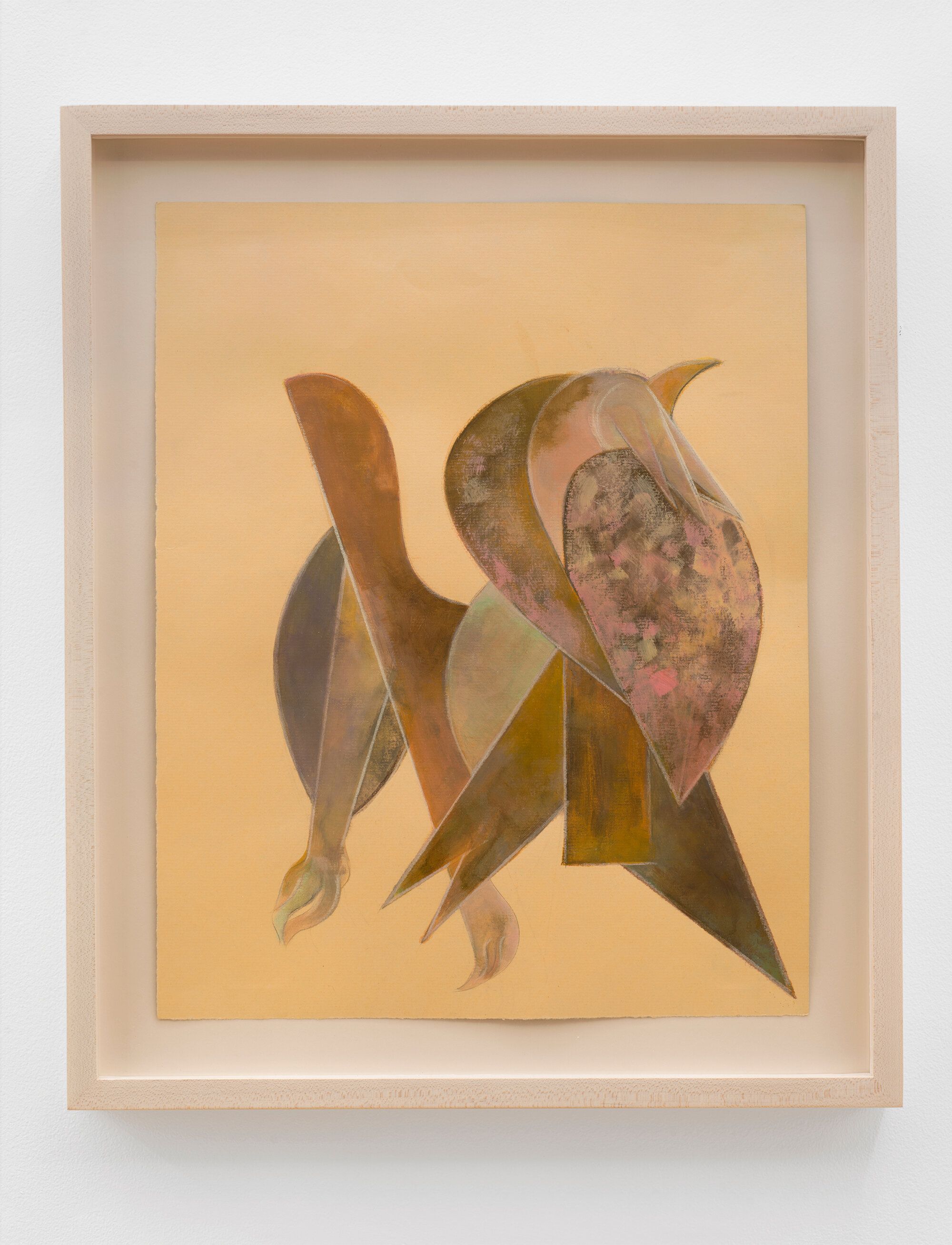
Lily Ludlow,
Untitled,
2017,
18 ¼ × 15 ¼ × 1 ½ in (46.36 × 38.74 × 3.81 cm)
Colored pencil, watercolor, push pin on paper, artist's frame
Press Release
Samara Golden, Daniel Hesidence, Xylor Jane, Willy Le Maitre, Lily Ludlow, Robin Peck, David Altmejd, Christian Quin Newell, Ken D. Resseger, RJ Messineo
The artists in The Thick Stream share a haptic approach to art making. Through a deep and loving engagement with material, these artists find a back door to the immaterial. The works here are not illustrations of the metaphysical – rather it is through the rituals of making that the artists eventually lead us to the other side. The moves and marks here are exploratory, celebratory, tender, and defiant as well as haunted by the messy politics of corporeality.
Explorations of chaos seek universal order through studies of numerical systems and sandwiched detritus from built environments (Jane; Sterling). Punk visionary expeditions yield disoriented revelations (Altmejd; Hesidence; Golden). Sublime phenomenology emerges from humble landscape paintings, contemplative portraits, printed textiles, and biomorphic abstractions (Resseger; Quin Newell; Le Maitre; Ludlow). Chroma, lush marks and palpable materiality also lead the way (Soucek, Peck and Messineo).
In all there is fine attunement to the sixth and seventh senses (the proprioceptive and vestibular). There are lyrical moments that refer to Impressionism, Symbolism, and Simultaneity, but a current of cyborg, outrage, and pragmatism ushers in some disorderly conduct. In this presentation manual and tangible forms help us to feel and celebrate the act of looking.
David Altmejd’s work explores the constitution and disintegration of the self, producing sculptures that expand the range of figurative representation, and conjuring abstract regions beyond the realm of recognizability. His work is centered on the human form, which in Altmejd’s vision includes not only the body but the mind, the imagination, and the soul, not to mention the ways the material world is perceived and felt through these channels.
David Altmejd (b. 1974, Montreal) has been the subject of solo exhibitions at David Kordansky Gallery (2021); Musées royaux des Beaux-Arts de Belgique, Brussels (2016); Kunsthal KAdE, Amersfoort, Netherlands (2016); Louisiana Museum of Modern Art, Humlebaek, Denmark (2015, traveled to Musée national des beaux-arts du Québec); Musée d’Art Moderne de la Ville de Paris (2014, traveled to Musée d’Art Contemporain de Montréal and Mudam Luxembourg – Musée d'Art Moderne Grand-Duc Jean), among other institutions. In 2007, Altmejd represented Canada at the 52nd Venice Biennale, Italy. Recent group exhibitions include In the Spotlight of the Night Life in the Gloom, Marta Herford Museum, Herford, Germany (2019); Zombies: Pay Attention!, Aspen Art Museum, Colorado (2018); ANIMA MUNDI, Museum Boijmans Van Beuningen, Rotterdam, the Netherlands (2018); Voyage d'hiver, Château de Versailles, France (2017). His work is in the permanent collections of museums such as the Museum of Contemporary Art, Los Angeles; Whitney Museum of American Art, New York; Guggenheim Museum, New York; Art Gallery of Ontario, Toronto; and Musée d'art moderne de la Ville de Paris. Altmejd lives and works in Los Angeles.
Samara Golden uses constructed physical space as an allegory for psychological space, Golden’s disorienting installations use the personal as momentum but not as biography. Sometimes referring to layers of consciousness her environments often appear in conflict with each other, stratified both spatially and socially, and evoke the anxiety produced by a political climate rife with social and economic inequality.
Samara Golden was born in Michigan in 1973 and received her MFA from Columbia University in 2009. Her most recent project The Meat Grinder’s Iron Clothes was featured in the 2017 Whitney Biennial. Golden has had recent solo exhibitions at MoMA PS1, New York; YBCA, San Francisco; Night Gallery, Los Angeles; and CANADA, New York. Her work was included in the 2014 Hammer Biennial, and Room to Live at MOCA Los Angeles. In 2015 a monograph on Golden was published by MoMA PS1, and her work has been written about in ArtForum, Art in America, The New York Times, The New Yorker, and Mousse, among other publications. Golden’s work is in the permanent collection of The Whitney Museum, New York; LACMA, and MOCA Los Angeles; The Zabludowicz Collection, London; and Yuz Museum, Shanghai. She lives in Los Angeles
Daniel Hesidence’s paintings represent a complex materiality, flesh and earth, synthetic constructs, and entropic distortions. The resulting interaction projects an evasiveness and familiarity that provokes one's perceptions. The artist’s acute awareness of how the viewer synthesizes the visual field is manifest in these paintings that hold the transactions between maker, and observer.The Summer’s Gun series represents the final installment of four distinct and fully realized bodies of work that are structured on the seasons. Like sonograms of the human body, the paintings in this series become instruments to open perception of our collective human circumstance.
Daniel Hesidence (b. 1975 Akron, Ohio) received his BFA from the University of Tampa, Florida in 1998, and completed his MFA at Hunter College, New York in 2001. Hesidence’s exhibitions include: Le Tableau at Cheim & Read, New York; ROSE LAUGHTER Winter Holiday, curated by David Altmejd at Andrea Rosen Gallery, New York; and Cave Paintings: Installment #1, organized by Bob Nickas at Gresham’s Ghost, New York, and D’Amelio Gallery, NY, Greater New York at PS1 in New York, USA Today: New American Painting from the Saatchi Gallery at The Royal Academy in London, and his body of work titled “Maritime Spring” was included in The Encyclopedic Palace at the 55th Venice Biennale curated by Massimiliano Gioni. His work can be found in major collections such as Charles Saatchi and the Museum of Contemporary Art Chicago.
Xylor Jane paints systems-based constellations; applying thousands of tiny dots articulated by pointed peaks. Jane explores vast textural and chromatic ranges, orchestrating intensely intricate paintings that reference numerical, time-based, and other patterned systems.
Xylor Jane (b.1963, Long Beach, CA) earned a B.F.A from the San Francisco Art Institute in 1993, and has been featured in numerous solo and group exhibitions both domestically and internationally, including: Parrasch Heijnen, Los Angeles, CA; Canada, New York, NY; Santa Monica Museum of Art, Santa Monica, CA; Almine Rech, Paris, France; and Four, Dublin, Ireland. Jane was recently part of a group show at Parts & Labor, Beacon, NY, 2020. She is represented by Canada in New York, NY and Parrasch Heijnen in Los Angeles, CA.
Willy Le Maitre tests the acuity of our perception. Drawing from his background in painting and time-based art forms, Le Maitre arranges snapshots into densely layered compositions that seem to propel us through space. Le Maitre plays off the aesthetic of street photography, transforming his subjects, places, and anecdotal scenes into poetic assemblages.
Willy Le Maitre's artwork has been featured at MOCA Jacksonville, at in New York at The New Museum, The Kitchen, Canada Gallery, CCS Bard College Galleries, Bitforms, the Baryshnikov Art Centre and in public galleries across Canada. It has garnered international acclaim including awards from Vida, Spain and the Telefilm prize at Images Festival in Toronto, Canada. His work with Eric Rosenzveig co-produced pioneering generative and networked artworks such as The Appearance Machine and the Fleabotic Hypermedia Nonet. During the past fifteen years he has developed a body of work he describes as the inhabited image where an image based artwork is experienced in space as well as in our bodies. The work includes innovations with Stereo 3D videos, live VRML performances, VR, 3D lenticular prints and his pharmaceutic Art Drugs. He is represented by Canada Gallery in New York.
Lily Ludlow makes paintings that are tablets to faith, love and mysticism. The surfaces chronicle a search for a human relationship through composition and color. Ludlow’s paintings are written and re-written manuscripts honed carefully from an empty blankness to a raptured blush. Layers are built up and lost like seashells in surf. These are faded frescos from some other more perfect architecture where people love better and more often.
Lily Ludlow (b.1970, Los Angeles) currently lives in Portchester, NY. She has held exhibitions at Shane Campbell (Chicago), Rebecca Camhi (Athen), and CSV (New York). Group exhibitions include CANADA (New York), Hauser and Wirth (New York), Shane Campbell Gallery (Chicago), Leo Koenig (New York), White Columns (New York) and Participant, Inc (New York). She has been featured in The New York Times, Interview Magazine, Vogue, Greece, WWD, and Nylon. She has held several solo exhibitions at CANADA and is represented by CANADA (New York).
Christian Quin Newell’s visual language draws on his own lived experience, as well as a myriad of references from buddhism, mysticism, alchemy, psychology and art history––utilizing the underpainting techniques and palettes of the Venetian Renaissance, as well as natural semi-precious pigments such as cinnabar and malachite found in Indian miniature painting. Ruminating on concepts of rebirth, karma, morality, and the act of storytelling itself, Newell’s modern allegories become a strategy of fantastical autobiography and a unique way of seeing––looking closely at both the external world and deeply within oneself.
Christian Quin Newell (b. 1991, Latisana, Italy) lives and works in London, UK. He holds a BA from Camberwell College of Arts, London, UK. Recent exhibitions include APOTHEOSIS, WT Foundation, Kyiv, Ukraine (2021) and 100 Drawings from Now, The Drawing Center, New York, USA (2020). He completed an invitational residency at the WT Foundation, Kyiv, Ukraine at the beginning of the year and was the artist in residence at The Fores Project, London, UK, May 2021.
Robin Peck’s sculptures conceal their method of fabrication and act as a critique and metaphor of the hidden components of labor in art objects. Peck is very particular about his materials, keeping track as he makes the sculptures and consistently elaborating on the invisible contents of each work. Trust plays a role in our understanding the relationship of inner and outer of his works. Peck reveals what is inside his sculptures, but we can only take his word for it.
Robin Peck (b. 1950, Red Deer, Canada) received his MFA from the Nova Scotia College of Art & Design. He has held teaching positions at the University of Western Ontario, London; Nova Scotia College of Art & Design, Halifax; Emily Carr College of Art & Design, Vancouver; University of Lethbridge, Lethbridge; Alberta College of Art and Design, Calgary; and most recently, Saint Thomas University, Fredericton, Canada. His work has exhibited widely at such galleries as Cooper Cole, Mercer Union, Diaz Contemporary, Toronto; Contemporary Art Gallery, Or Gallery, Vancouver Art Gallery, Vancouver; Art Gallery of Nova Scotia, Anna Leonowens Gallery, Halifax; Triangle Gallery, Stride Gallery, Calgary, Canada; and CANADA, New York, USA. Peck currently lives and works in Fredericton, Canada.
Ken D. Resseger’s process is akin to automatic writing but with materials and techniques - a searching, scrawling, that builds dimensionally.He works on a hard surface and uses tools like metal scrapers and power sanders and mini grinders to cover his tracks. Ideas come out of the ether. Ghosts of past ideas participate. The subject lies somewhere between a stilled reality and one reflecting other wavelengths of experience.He references Flemish painting, Seurat, and Chinese scroll paintings, but nature clearly plays a central roll in these intense explorations.
Ken D. Resseger (b.1981, Providence, R.I.) lives and works in Providence. He holds a B.F.A. from Pratt Institute in NY. Recent exhibitions include “Digging For Diamonds in the Disco,” Club Rhubarb, NY, Drawing Center, Howard Art Center, Boston, HP Garcia, NY, and Heskin Contemporary, NY.
Emma Soucek The textural interplay of Emma Soucek’s painting comes in the form of pinched, spread, and pleated pigmented paper pulp. Soucek’s process involves taking something which is fully formed - in this case, construction paper and other commercial stationery - and deconstructing it to a raw matter before re-visualizing it in revived manifestations that adhere to the canvas as they cure. In each painting the artist engages chance, combining remnants of personal moments and memories to create a world of her own where positive chromatic energy and expression is circumambient. The malleable nature of Soucek’s medium allows for intuition and improvisation to take hold.
(b. 1996, Long Beach, CA) lives and works in New York. Soucek received her B.F.A. from the Rhode Island School of Design in 2018. She has taught workshops to New York school children through the New York-based non-profit Wide Rainbow. Soucek’s work was featured in a solo presentation at NADA Miami 2019 (Safe Gallery, Brooklyn, NY) and has been included in two-person and group exhibitions at: Safe Gallery, Brooklyn, NY; Loyal Gallery, Stockholm, SW; Marinaro, New York, NY; and At Peace Gallery, Brooklyn, NY. Her most recent exhibition was ‘Edge Events’ at Parrasch Heijnen, LA.
Justin Sterling considers the built environment his medium and deeply explores this methodology, collecting abandoned windows and various other urban objects from various neighborhoods in Brooklyn and Lower Manhattan, and Queens; repurposing them, reimagining their stories. He fills them with new life, literally and figuratively, using a variety of media to express both their pasts and their futures, within the language already prompted by windows in the built environment.
In New York City, broken windows come with the additional context of “broken windows policing,” a policy intended, intellectually, to make existing communities feel safer by reducing “nuisance crime” that is maintaining public order at the lowest levels to improve the overall sense of safety and security in the community. In New York, as in many other cities, the application of this practice was very different in reality, leading to the profiling, arrest, and incarceration of innumerable young men of color, and to other notoriously racist police practices such as “stop and frisk.” These policies forever damaged the social landscape of people of color living in New York City.
Justin Sterling (b. 1992) is a visual artist based in New York. Born and raised in Houston, Texas. Sterling has shown work at BRIC in Brooklyn, NY; Foundation Francois Schneider in Wattwiller, France; CampoBase in Turin, Italy; Australian American Association (AAA) in New York, NY; MoMA PS1 in Queens, NY; 1980 Performance Space New York, New York, NY; The University of Rochester in Rochester, NY. Most recent exhibitions include 'Orange Chapel' at Cathouse Proper, NY, and group show, 'Marking Time: Art in the Age of Mass Incarceration at, MoMA PS1.
RJ Messineo makes paintings involving observation and abstraction. Concerned with experiences living in and moving through public and interior spaces, the works implicate the body and reference landscape, the street, windows, beds, and blankets. Messineo engages a wide, and sometimes incongruous range of scale relationships, mark-making, and compositional structures to make the paintings, from expressionist gesture, to process-based systems and chance encounters. Many of the large paintings incorporate sheets of plywood adhered to the surface of the canvas, often extending beyond the rectangular picture plane to create idiosyncratic shapes. The rigid elements allow Messineo to push the application and texture of the oil paint – thick, impasto sections are scraped onto the surface or carved into, scribbling marks fade into shifting moments of washy, brushed-on color.
RJ Messineo (b. 1980, West Hartford, CT) currently lives and works in Brooklyn, NY. The artist received an MFA from the University of California, Los Angeles (2009), and a BFA from Cornell University in Ithaca, NY (2002). Messineo has been included in exhibitions at CANADA, New York, NY; James Cohan Gallery, New York, NY; Ceysson et Benetiere, Koerich, Luxembourg; and Artist Curated Projects, Redling Fine Art, REDCAT Gallery, all in Los Angeles, CA, and Morán Morán in Los Angeles, CA. Messineo is a Shandaken: Paint School Fellow, and also completed the Fire Island Artist Residency in 2014. Messineo’s work is included in the Dallas Museum of Art’s permanent collection.